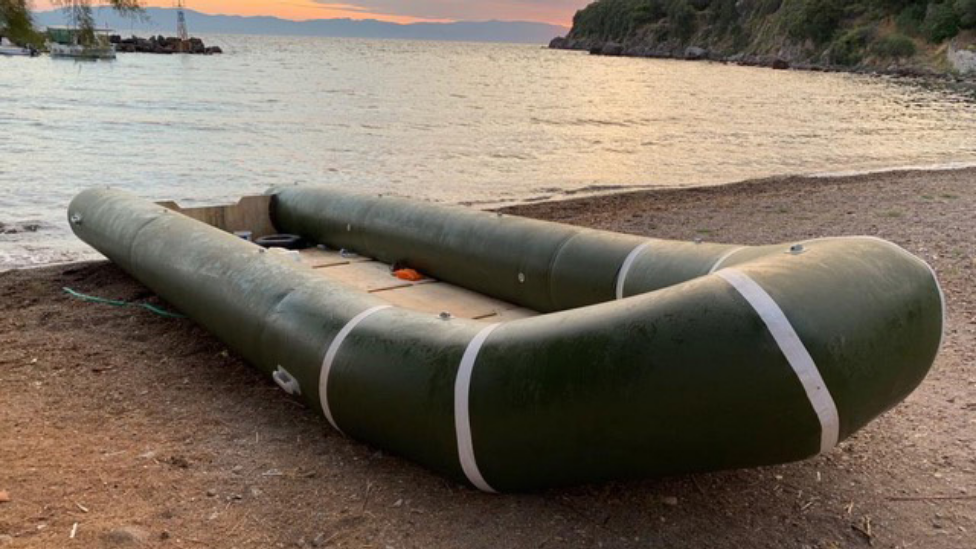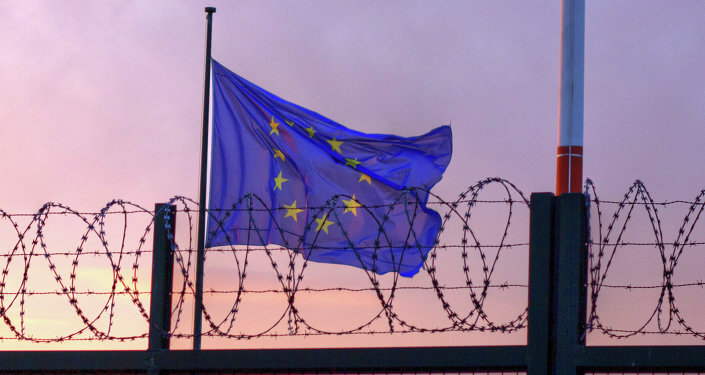During the Corona lockdown, we interviewed Ibrahim, a Sudanese asylum seeker who lives in Amsterdam. In this article, he shares the story of his journey from Sudan to the Netherlands.
31/10/2020 / Amsterdam Alternative #033 / Text: Ibrahim*, allincluded.nl (Vincent de Jong, Gabrielle Fradin)
My name is Ibrahim and I’m originally from Sudan. Before leaving, I worked for ten years as a taxi driver in both Sudan and Cairo, Egypt. I had two cars and was renting one out to a friend. I wanted to go to Europe to get a better life and be able to support my family, my mother and my four sisters.
In 2009, at the age of 26, I decided to leave Sudan. I paid around 5000 euros to the smugglers to get me to Greece. I got in touch with them through a friend of mine. I first went to Istanbul where I stayed for a day before taking the bus to Izmir where the boat to Greece was going to leave.
In Izmir, the smugglers, a group of Turkish men, drove us to a nearby beach in the middle of the night. They pumped up the dinghy (an inflatable boat) and gave us a life jacket each. As we entered the boat, everyone had to hand over their telephones. One of the Turkish smugglers drove the boat. His job was to drop us off and return to Turkey. About 40 people shared this dinghy made for 10. As I was the last one to step on the boat, I found myself squeezed besides the boat engine and the petrol-filled jerry cans. There were passengers from many different countries: Sudan, Libya, Morocco, Ghana, Algeria and Afghanistan.

For the crossing, different people payed different prices. I know some people from Syria who paid 18,000 euros to come to Europe. In general though, it’s around 1,500 euros per person, adding up to 60,000 euros for a dinghy with 40 people. Smugglers make a lot of money!
We left Turkey around midnight. It was January, it was cold, rainy and the sea was very rough. After a while on the water, I saw that petrol was leaking from the jerry cans and realised that we probably wouldn’t have enough petrol to make it to Greece. On top of it, there was quite a lot of sea water splashing in the boat and, as it mixes with petrol, it can cause serious caustic wounds on your skin. I was in a terrible spot, next to the engine. The skin on my legs was burning so much but I couldn’t move as the boat was overcrowded. I had to hold on to the sides with both hands. Moving would mean to fall in the sea. And I can’t swim! I just sat there for 3 or 4 hours, as my left leg was getting completely burned.
We ran out of fuel and the engine stopped. Everyone started to panic. Some people were screaming. At that point, it felt like there was no way we could make it to the other side. We were still very far away. We felt trapped in the middle of the sea, in the freezing cold. We eventually managed to take the smuggler’s phone and contact Greek emergencies.
Some time passed. In my memory it was like a scene from the movie Titanic: I was about to drown when the hand of a Greek coastguard appeared. He saved me and brought me back to life. Then I lost consciousness again. Next thing I know, I was safe on the coastguard’s boat. I think ten of us drowned that day. As I recovered on the Greek boat, I saw the Turkish smuggler being beaten up by the Police.
We arrived on the Greek island of Samos, and I was directly taken to the hospital where I stayed for almost three months to heal and recover. My skin was very badly burnt during the crossing and looked like that of a cooked fish. During my recovery, my skin came off layer after layer. I went through three operations in the first three weeks. It took me two months to start walking again.
I decided to leave for Athens as soon as I could. At that time, getting the ferry to the mainland was still possible without much trouble2. I contacted my sister in Sudan to transfer money for the second part of my journey: from Greece to the Netherlands where friends told me to join them. I paid 500 euros for a fake passport and a plane ticket from Athens to Paris. I was so excited to leave Greece!
Everything ran smoothly afterwards. I arrived at the airport in Paris and took the metro to the city centre. I stayed there one night before taking the train to Amsterdam. I didn’t have much time to see Paris. I hope one day I can return and visit the Champs Elysée. When I arrived in Holland, I immediately started an asylum procedure at Aanmeldcentrum Ter Apel, in the North.
After staying one and a half years at several asylum camps, I got a letter notifying me to leave the country because I had lost the asylum procedure. The immigration service did not believe that I was Sudanese. As I didn’t really understand what the content of the letter meant, I went to the police station myself where, to my surprise, I got arrested and taken to the Zeist Detention Centre. I stayed there for six months. This was in 2011. In this period, the Immigration Service brought me to three different embassies: Sudan, Chad and Egypt. They needed a laissez-passer, a one-way travel document, from an embassy to deport me. As these attempts failed, I was released after six months of detention. During this time, I worked hard to learn Dutch, watching the soap Goede Tijden, Slechte Tijden every day. I was convinced I had to understand the language.

Then, I joined We Are Here, a group of undocumented asylum seekers, at the squatted Vluchtkerk in Amsterdam. In 2013, after being stopped by the police for an ID check, I was taken back to the Zeist Detention Centre for three months. This second time in prison was really difficult. I felt very stressed and annoyed as I was detained for no other reason than the fact that I didn’t have papers. Then, the court decided in favour of my release as the police had stopped me on the basis of racial profiling.
As I came out, I joined We Are Here again at the Vluchtflat squat. Together, we lived in most areas of Amsterdam. Over the course of eight years, we got evicted from 15 different locations! Constantly moving got too stressful after a while and being a stuck together in this situation didn’t make it easier either. I left the group in 2018. It’s pretty hard to look back at that time as most of my friends from the We Are Here group have papers now. It feels like it’s all down to luck really.
At a certain point, a Sudanese friend of mine asked me if I wanted to cross the Channel to England on a dinghy for 500 euros. I told him I had taken enough risks. He is in Great Britain now.
For three years, I have a passport and my birth certificate from the Sundanese embassy. I’m doing the procedure for the fourth time but this will be the last. I can’t go on like this for the rest of my life. If I don’t get asylum within the next six months, I will go back. It’s really difficult but it feels like I’m wasting my life just waiting for something to happen.
I have seen more than enough. My mind is very tired. Still, I try to cope by putting out there what I feel inside. I find that this is very important for my mind, to feel a bit better. That’s all I do. I also pray a lot.
I’ve now been in a difficult situation in the Netherlands for eleven years, that’s a very long time. How do I look back on those years? I don’t think it should be possible for everyone from Africa to come here. And yet I have come. Live isn’t always straightforward. I tell my story to give something back after receiving solidarity from some Dutch people. And perhaps to make other people think. I don’t want to feel anger. I have to deal with my life. Anger is a problem. I don’t want a problem. I just want to live.
